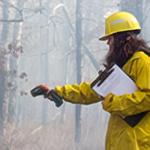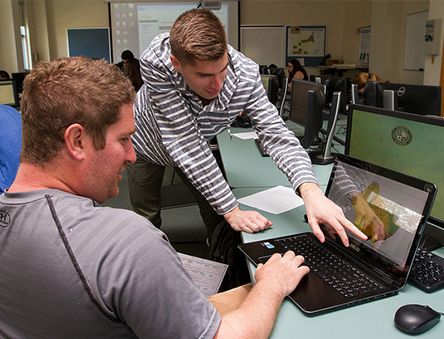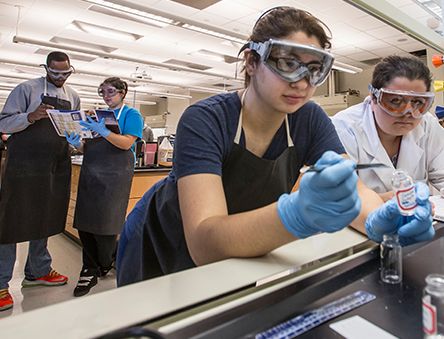School of Natural Sciences and Mathematics
Welcome to the School of Natural Sciences and Mathematics (NAMS) at Stockton University. NAMS offers a rigorous, student-centered curriculum with emphasis on teaching and faculty-mentored student research.
Our faculty has a strong interdisciplinary interest coupled with a commitment to maintaining the strengths and standards of the traditional academic disciplines. Stockton presently grants almost 22% of all the science and mathematics undergraduate degrees among New Jersey's senior state colleges and universities. Stockton graduates in the sciences and mathematics have a high success rate in graduate and professional school admissions, as well as securing employment within their areas of study.
Alumni Success
As a student, I was involved in the mapping of the Robert J. Walker through the New Jersey Benthic Studies class taught by Dr. Peter Straub (now Dean Peter Straub). I was one of three students on the project, and was able to get amazing experience working with ROVV and multibeam. The experience I have in that class made me fall in love with research. I even got the opportunity to present the research for NOAA and the Explorers club.
Read Chelsea's Whole Story

B.A. Marine Science '15
During my junior year, I had the opportunity to use the forest on Stockton's campus as a living classroom. Stockton University is the first public land in the New Jersey Pinelands to have a comprehensive forest management plan, and I was one of the lucky few who played a role in its inception.
Read Emily's Whole Story

B.S. Environmental Science, Minor in Writing '15
The program was excellent and provided me with the foundational knowledge needed to pursue my Master's degree in forestry at Yale University. I would especially recommend the program to any motivated individuals interested in earning a degree to enhance their career and/or individuals seeking a higher education degree.
Read Vinh's Whole Story

B.S. Environmental Science,
Minor Writing '13
NAMS in the News
- Stockton Volunteers with N.J. Osprey Project to Monitor Nests
-
Anglers catch fish for science and to save a species vital to every state on the Atlantic coast
- Discovery Of 16-Inch-Long Saber-Toothed Tiger Skull Proves They Were Bigger Than We Thought
- Ocean County, NJ Wildfire 65% Contained After Burning Over 15,000 Acres; High Winds Challenge Firefighting Crews
- Ocean County wildfire: Strong winds complicate firefighters' efforts; fire only 65% contained


















